
Race, Energy & Climate Justice
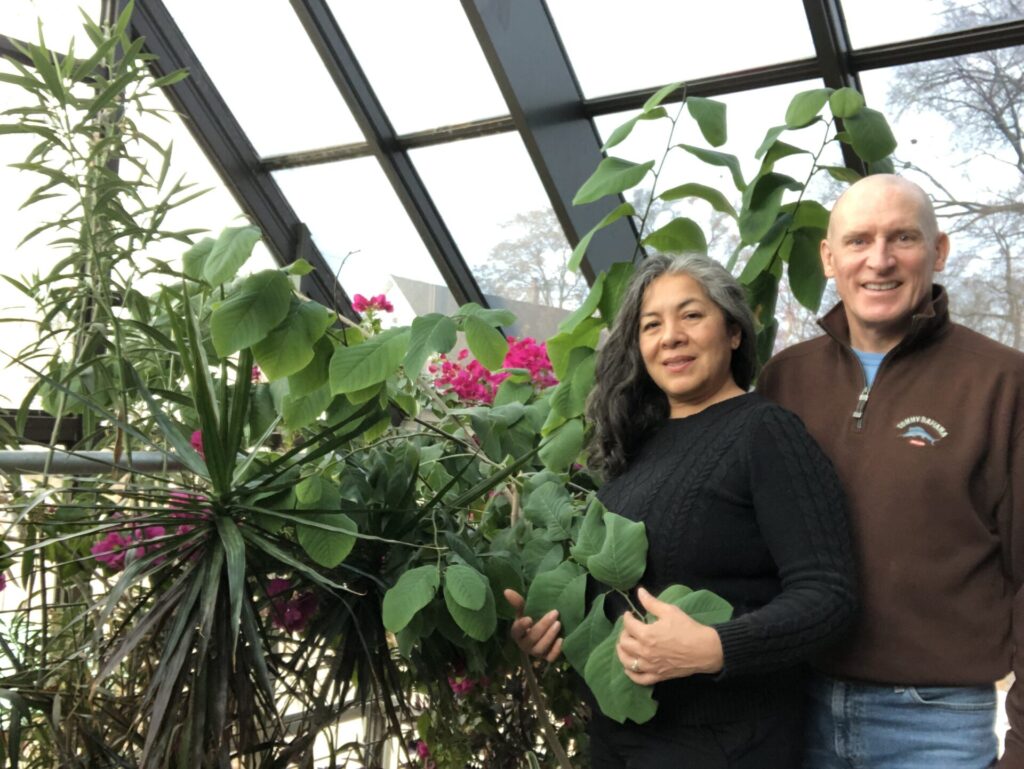
Walking the Energy Efficiency Walk with Detroiter and Pecan Street Participant Ed Gies
By Colin Rowan, director of communication, Pecan Street – If you go through the list of technology and energy efficiency features in Ed Gies’ southwest Detroit home, it’s hard to believe it’s the same neighborhood his parents lived in after World War II.

Connecting Energy Data with Voices of Real Homeowners
Guest Blog by Hannah Danaë Goodman of CAPA Strategies – No one likes to spend on their energy bill, but for many families across the country, utilities aren’t just an inconvenience but a huge financial burden. For families living paycheck to paycheck, high energy bills can be a serious source of stress that forces them to do burdensome mental math about cutting costs in other areas, finagling payment plans, or reaching out to family members for assistance.
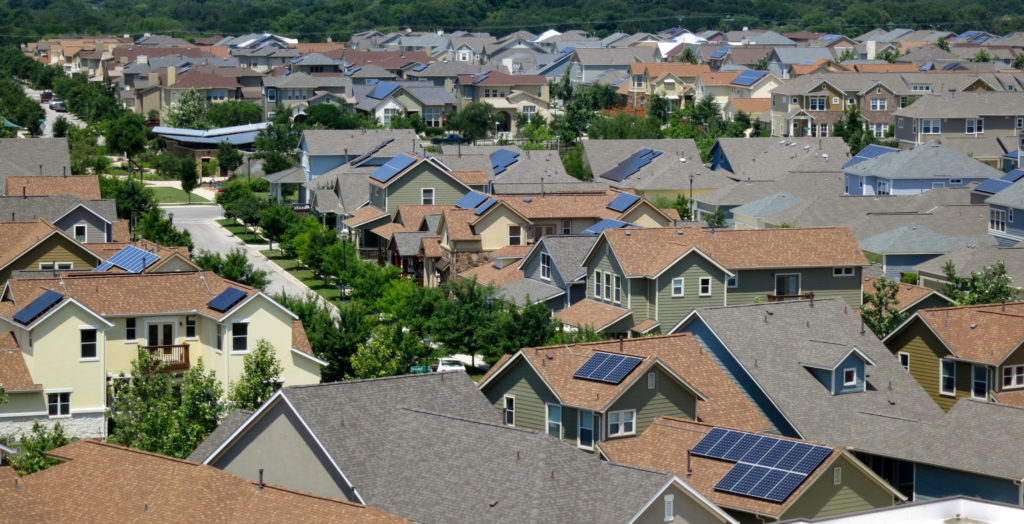
Pecan Street Awarded $7.9 Million to Develop Solar Congestion Solution, Improve Solar Access for LMI Customers
The U.S. Department of Energy has granted a five-year, $7.9 million Grid Resilience and Innovation Partnerships Program (GRIP) grant to Pecan Street Inc. and its partners to develop and deploy technology that will allow utilities to manage solar supply and energy demand throughout the grid.
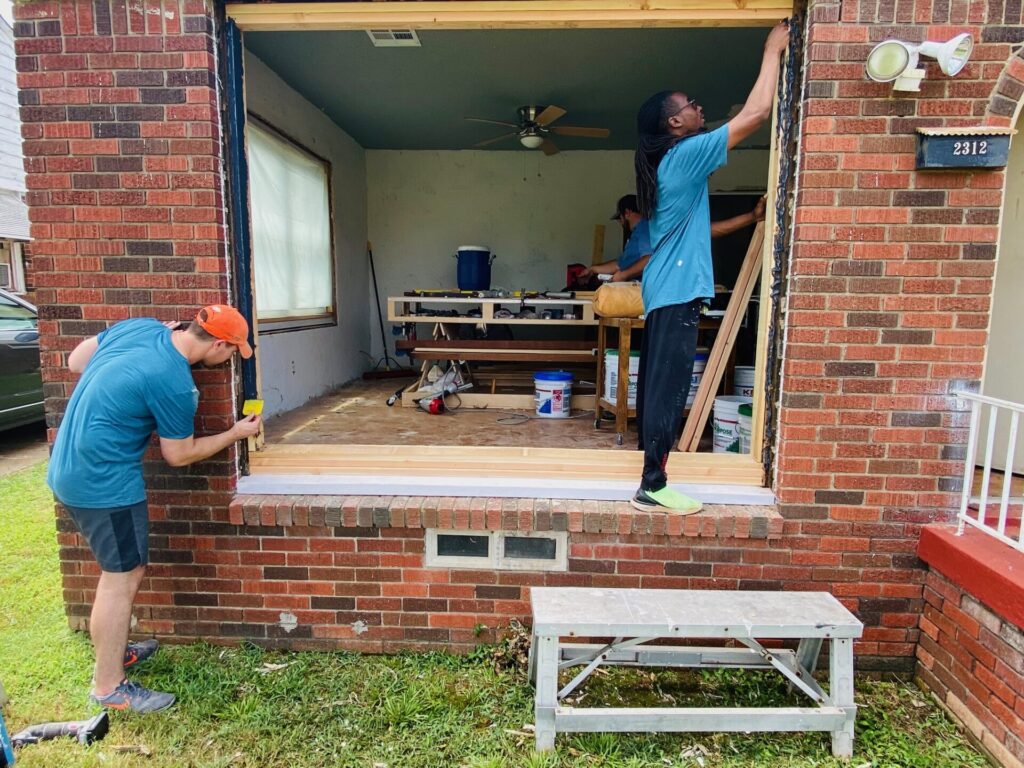
Restore OKC Brings Pecan Street’s Research Network to Oklahoma City
Restore OKC has teamed up with the University of Oklahoma and Pecan Street Inc. to help launch an energy efficiency and awareness program in northeast Oklahoma City. We’re already recruiting participants, conducting energy audits and installing equipment that will measure how these improvements affect participants’ energy use and costs.

Pecan Street Inc. and Local Partners to Expand Novel Energy Equity Research Network to Oklahoma, Georgia, Oregon and Pennsylvania
A 3-year, $2.5 million grant from the Alfred P. Sloan Foundation to Pecan Street Inc. and university and local community partners will expand Pecan Street’s household energy research network to four new regions.
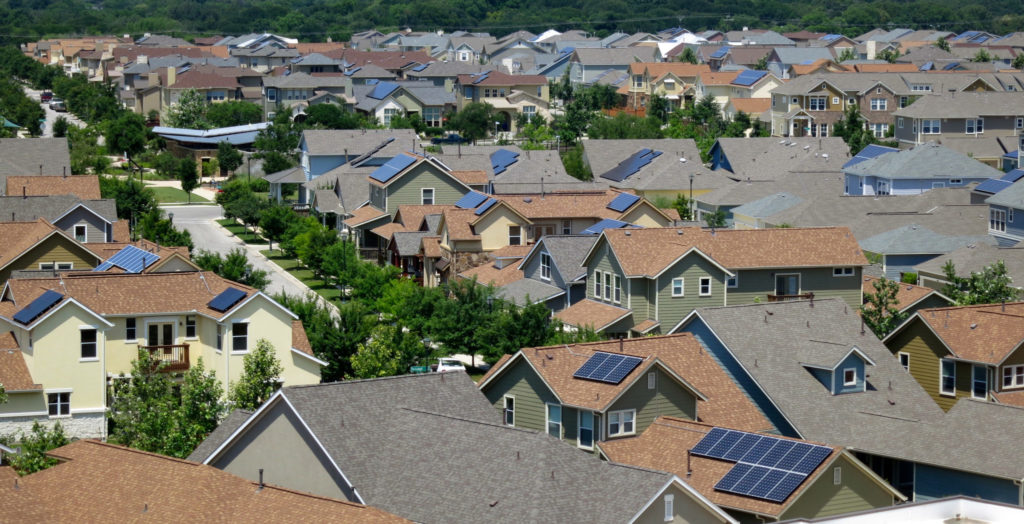
Meet Some of the Groups Making Solar More Accessible
by Jill Harlow – The most common question I heard repeated over the three days: How did you do your community engagement? Learning to authentically center on community needs and goals takes time, hard work, and often comes with many false starts and missteps.
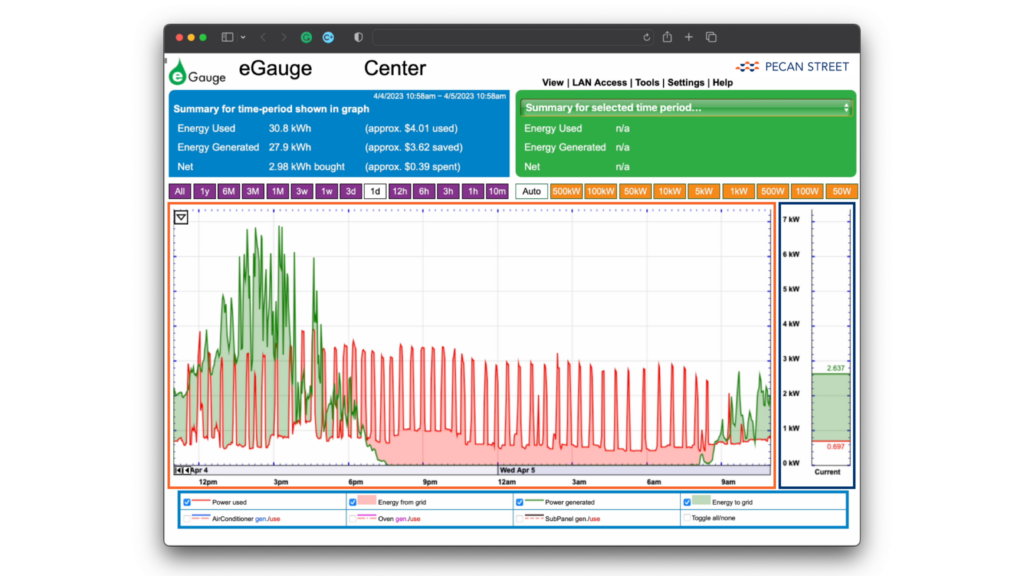
eGauge Tour: A Quick Tutorial for Pecan Street Participants
By Rachel Jenkins, Director of Operations, Pecan Street – If Pecan Street has installed an eGauge in your home and you’re looking for a quick guide for viewing your data, you’re in the right place. Below you’ll find everything you need to know to log in and nerd out.

Community, Local Experts and Showing Up Have Been Key to Pecan Street’s Expansion
By Rachel Jenkins, Director of Operations, Pecan Street – My recent trip to Culebra, Puerto Rico, where we’re recruiting about 50 families to participate, was further proof that community, local experts and simply “showing up” have been key to our efforts.
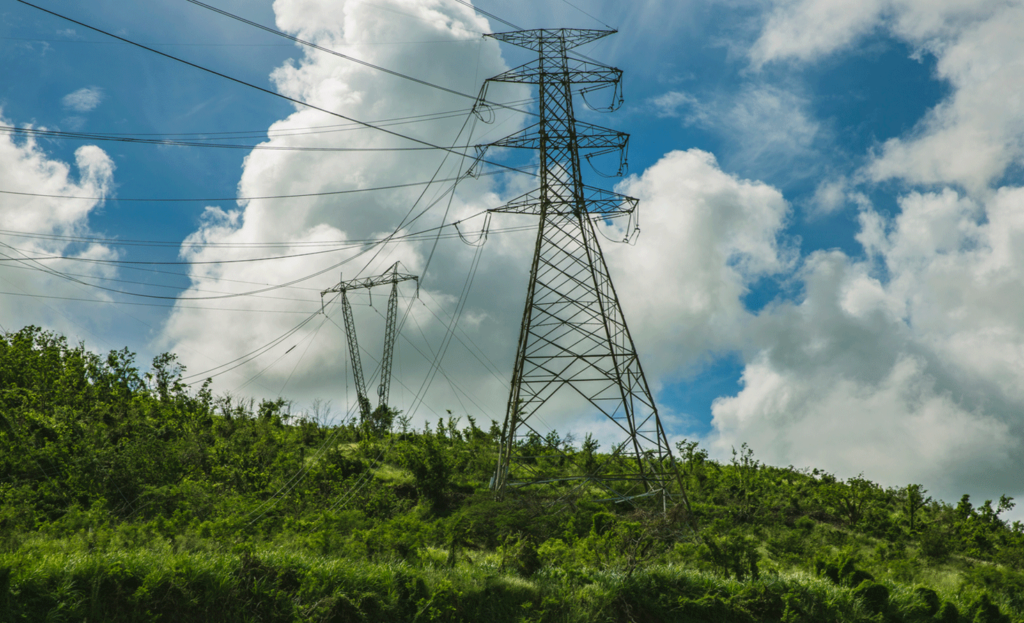
Pecan Street’s Expansion to Puerto Rico Promises Energy Data Goldmine for Researchers and Electricity Customers Everywhere
By Cavan Merski, data analyst, Pecan Street – Our expansion into Puerto Rico is unique; nowhere else on Earth can you find the island’s combination of energy challenges and energy ambition.

Inflation Reduction Act Sets United States on Path to Clean Energy Economy
The Inflation Reduction Act of 2022 sparks the country’s largest investment to address climate emissions and rapidly accelerate the transition to clean energy. Following is a statement from Suzanne Russo, CEO, Pecan Street Inc.

Digital Dirt Update: Using AI/ML to Advance Soil Carbon Sequestration
By Scott Hinson– Pecan Street’s Digital Dirt initiative was designed to accelerate the development of cost-effective ways to predict how land management practices can increase soil organic carbon, a promising climate solution. The next generation of high-tech sensors will surely be part of the solution, but they a still far from being something most producers can use to obtain accurate results. We see significant near-term potential for simulation models to fill this gap.

Help Save The Grid, Get Free Stuff: Our New Study Needs 50 More Participants in Austin
By Rachel Jenkins, director of operations, Pecan Street Inc. – Want to reduce your home’s grid impact without turning up your AC? You may be a perfect fit for a study we’re conducting with the University of Michigan that will test automatic, on-the-fly conservation events without adjusting your thermostat.

More Clean Power in Texas will Require More Grid Transmission and DER Development
By Cavan Merski, data analyst, Pecan Street – The ERCOT power grid is back in the news. Texas experienced its hottest May on record and June has seen consistent record-breaking temperatures as well. ERCOT has been busy trying to balance extremely high grid demand with various electric generation plant outages. On June 12, ERCOT recorded its highest ever grid demand of over 75GW. That record only lasted one week before grid demand climbed to more than 76 GW on June 20. And we're wasting emission-free wind and solar power.

Cooling a Warming Planet: What Homes in Texas and New York Can Teach Us About Cooling Demand Around the Globe
By Cavan Merski, data analyst, Pecan Street – We were interested to see how our homes in these two regions compared now and what will happen in the future as climate change brings warmer summers to most of the country, so we performed a series of regressions to explore differences in the cooling load between homes in Austin, TX homes and Ithaca, NY.

First Look at High-Resolution Home Energy Data in Puerto Rico Suggests Vastly Different Challenges and Opportunities.
By Cavan Merski, data analyst, Pecan Street – The first Pecan Street home in Puerto Rico is online, and we already see some differences compared to the hundreds of homes in our network in Texas, New York, California and Colorado.

Pecan Street Inc. and GAVA Selected to Lead Solar Energy Innovation Network Project in Austin
Pecan Street Inc. and GAVA were selected by the U.S. Department of Energy’s National Renewable Energy Laboratory (NREL) to participate in the Solar Energy Innovation Network (SEIN) to discover transformative ways of accelerating equitable residential solar adoption in historically underserved communities. Seven other projects around the country were selected to participate in the SEIN program.

The Better Your Data, The Better Your Microgrid
By Cavan Merski, data analyst, Pecan Street Inc. – Microgrids get name-dropped a lot. And for good reason. The promise of a smarter, more resilient, and cleaner grid is enough to make any energy geek swoon. But given all the buzz, there’s a short supply of guidance on how we can deploy microgrid technology at scale. Pecan Street’s new analysis puts our energy data expertise to work to answer part of the microgrid riddle – how can big data enable widespread microgrid deployment?

COP Should Embrace Community-based Climate Solutions
An effective way to cut through climate rhetoric and overcome the paralyzing pressure of climate anxiety is to simply get to work on something immediate and tangible.

Puerto Rico Voluntary Participation Agreement
Following is a participant agreement for Pecan Street’s current volunteer recruitment in Puerto Rico. By completing and submitting this form, you are agreeing to the terms outlined below. Please read this agreement carefully. It explains all of the roles and responsibilities for Pecan Street Inc. and the research participants. After reading the agreement, you will […]

Pecan Street is Expanding its Residential Energy Research Network to Puerto Rico
The Alfred P. Sloan Foundation awarded Pecan Street a $100,000 grant to investigate how high-resolution residential energy data can inform the design and management of microgrids in Puerto Rico and enable the development of policies and economic structures for grid services from Behind-the-Meter (BTM) assets. This research will contribute to efforts to increase the resilience of Puerto Rico’s infrastructure in the face of increasing threat from natural disasters caused by climate change.

Utility Dive: Energy equity depends on data, and experts say there isn’t enough of it
Utility Dive's Robert Walton recently spoke to Pecan Street Communications Director Colin Rowan about our effort to expand our volunteer research network in Detroit, MI.

Pecan Street to Develop Toolkit for Distributed Energy Resources Adoption at Historically Black Colleges and Universities
(AUSTIN, TX — June 22, 2021) The Cynthia & George Mitchell Foundation awarded Pecan Street Inc. a $40,000 grant to bring its unique data and research capabilities to developing a Distributed Energy Resources (DERs) Toolkit for Historically Black Colleges and Universities (HBCUs). Pecan Street will partner with Huston-Tillotson University in Austin to develop resources that support DER deployment on HBCU campuses to provide new revenue opportunities and support community resilience centers. The effort will produce an online DER planning and implementation toolkit geared towards the unique aspects of Texas HBCUs and technical support resources.

Earth Day 2021: Is it just us, or does something feel different?
After more than 50 years of celebrating Earth Day, you’d be forgiven for thinking that it’s taken far too long for the simple concept of valuing our planet to go mainstream. It has taken too long. Climate scientists have been telling us for decades the clock is ticking while the world gets its act together.

A Look at Water Equity in Black History Month
Black History Month gives us an opportunity to acknowledge and celebrate the contributions of African Americans to American society. In each facet of American life, it is also a time for assessment and contrast—to measure the lived experiences of African Americans in their communities against our founding promises of opportunity and equality for all

What is the intersection of farming and ranching with climate?
Guest blog by Dr. Lakisha Odom, Foundation of Food and Agriculture Research - Now more than ever, it is apparent that agriculture can be instrumental in addressing the needs of climate change and there is a potential positive impact that agriculture can have to address Greenhouse Gas emissions reductions. This positive impact has centered farmers and ranchers in conversations on the potential climate change solutions
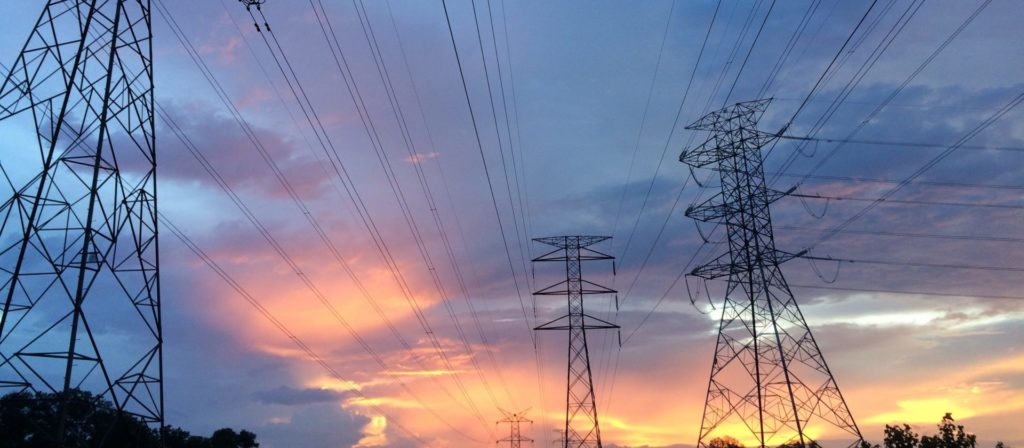
States Remain in the Driver’s Seat of the Just Transition
Guest blog by Rory Christian, principal of Concentric Consulting Group – In some states, laws treat access to natural gas as a customer’s right and utility’s obligation. In others, incentives and capital investments remain focused on gas efficiency, but do little for electrification. These policies encourage the continued use of natural gas and serve to subsidize the cost of adding new customers, spreading it out among existing customers.

Addressing a Data Blind Spot for Clean Energy Modelers
We’ll identify and collect hyperlocal sociodemographic and air quality data and build a modeling overlay that enables grid system modelers to assess the local benefits of shutting down individual power plants.

We Don’t Have Time to Solve Problems One-at-a-Time. And We Don’t Have To.
By Suzanne Russo, CEO, Pecan Street - We can’t solve all of our problems independently – we don’t have time. And science tells us we don’t have to. So Pecan Street is adopting a Wicked Solutions approach to all our work. We will apply our unique capabilities to identify and prioritize the wicked problems that sit at the nexus of climate change mitigation and adaptation and focus our effort toward developing wicked solutions.
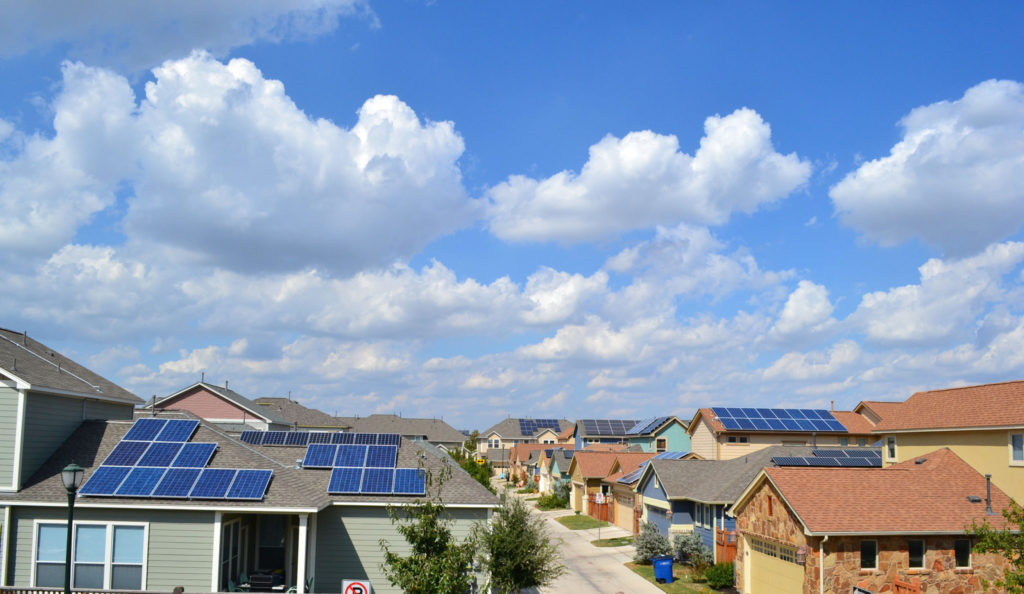
Utility programs have helped customers weather COVID. Will they continue?
By Clayton Johnson, Communications Coordinator - To show the impact of the relief package, we compared utility bills at the reduced rates to the standard, pre-COVID rate. Energy use in 2020 increased by 14% in April, 10% in May, 2% in June, and 4% in July compared to monthly averages from 2017-2019.

Your Data in Action
Over the past several weeks, our work has been focused on the COVID-19 pandemic and the momentum behind the racial justice and equity movement. As always, our home energy database has been central to the work we've accomplished.





